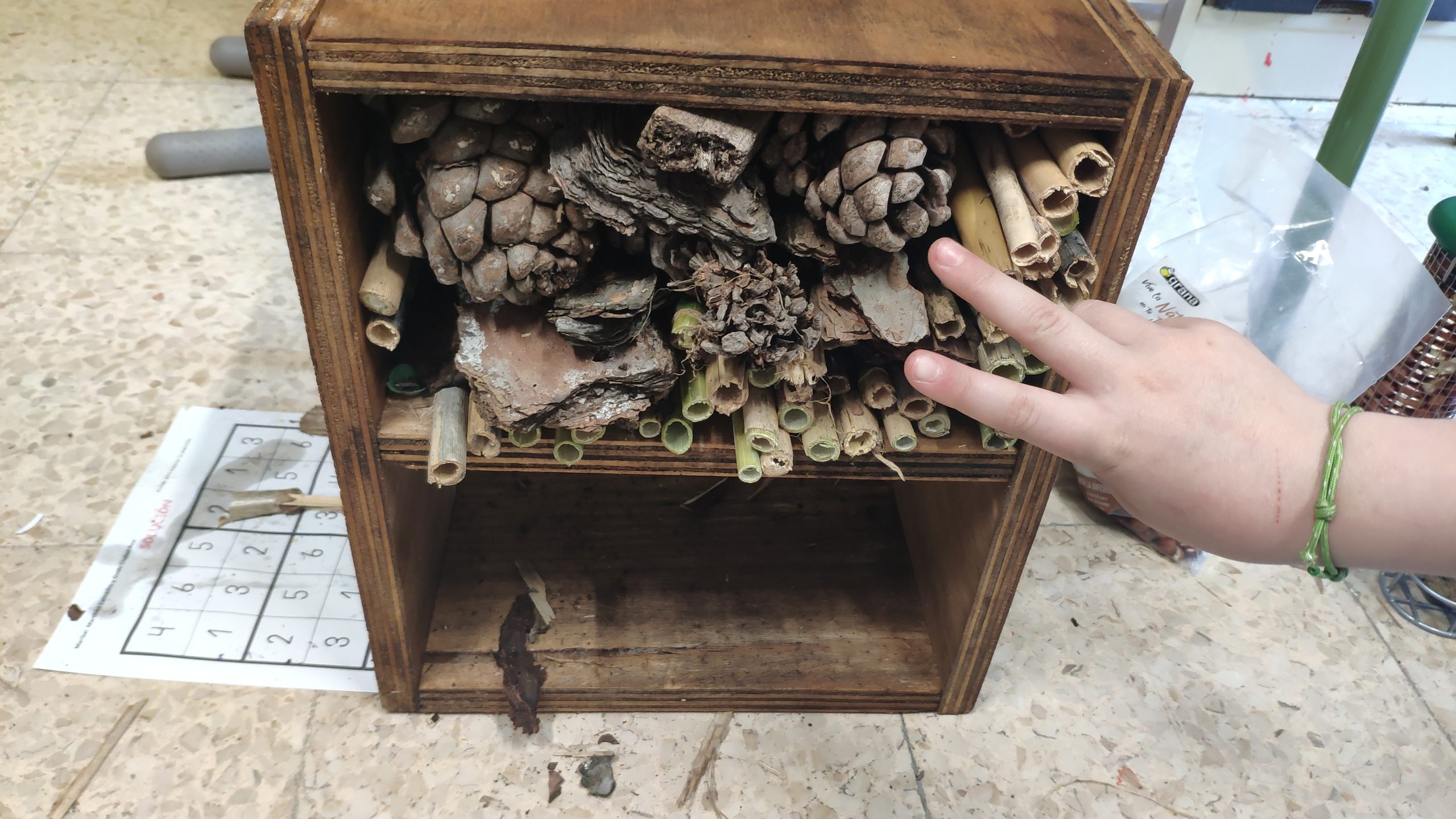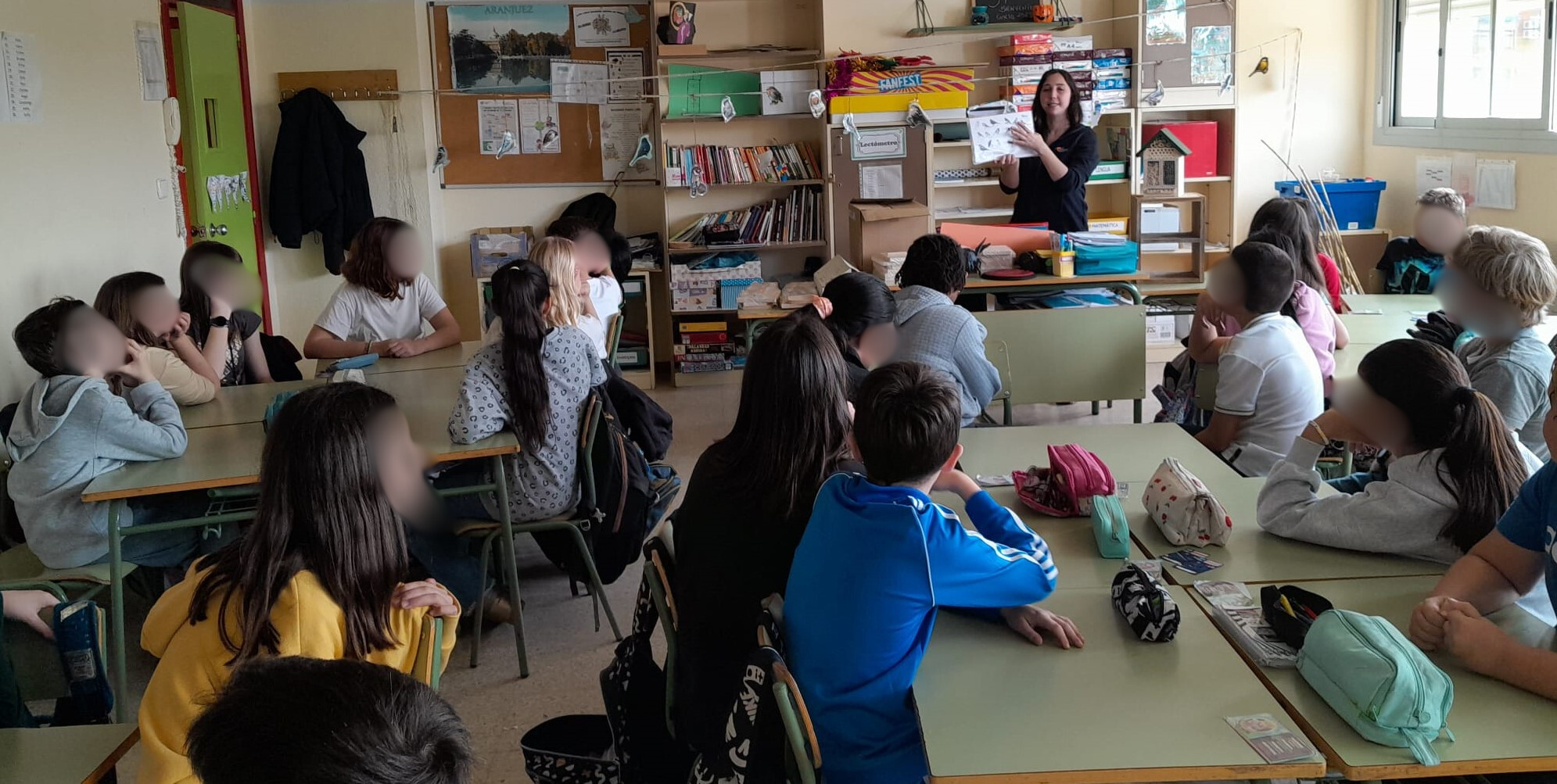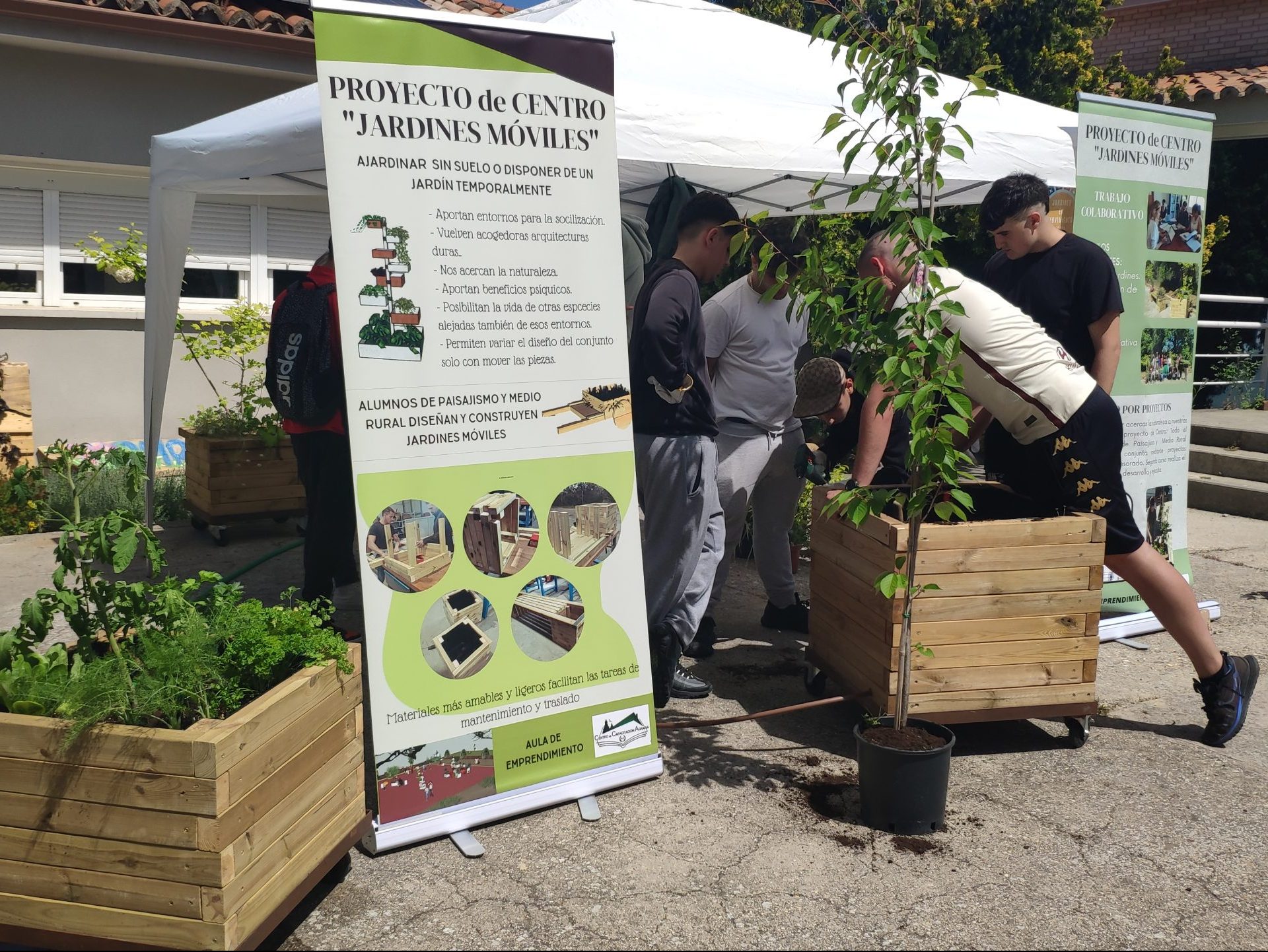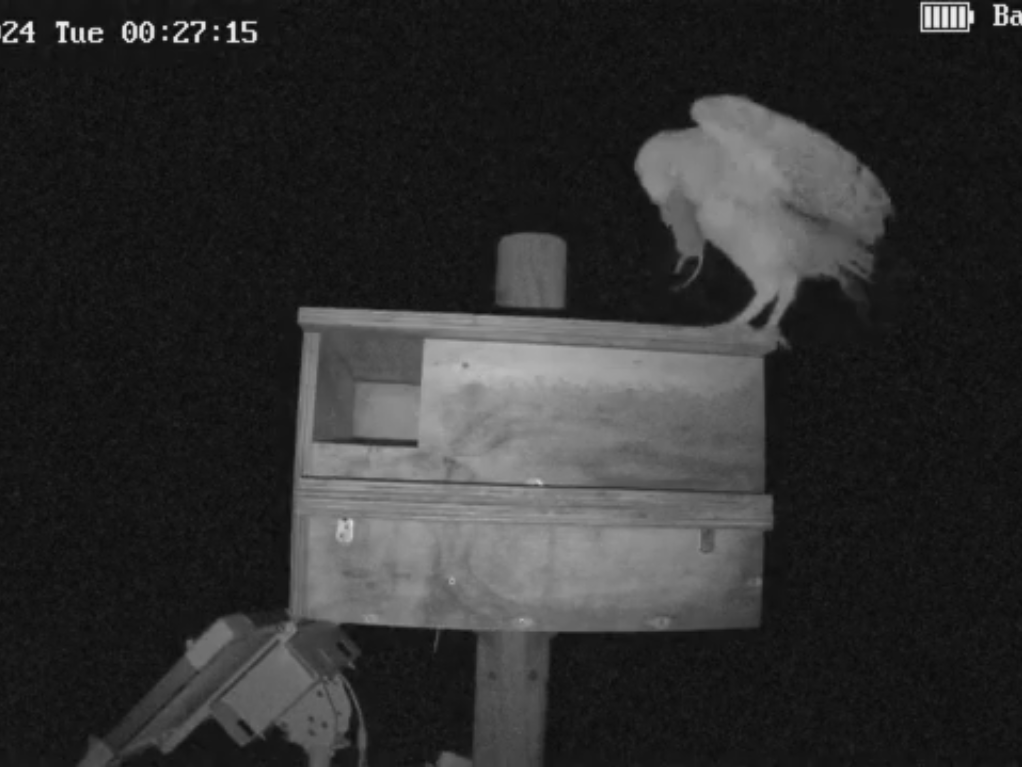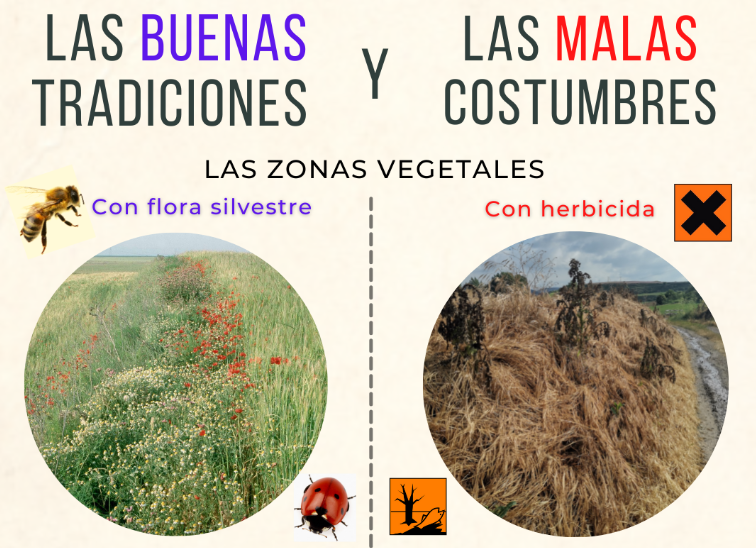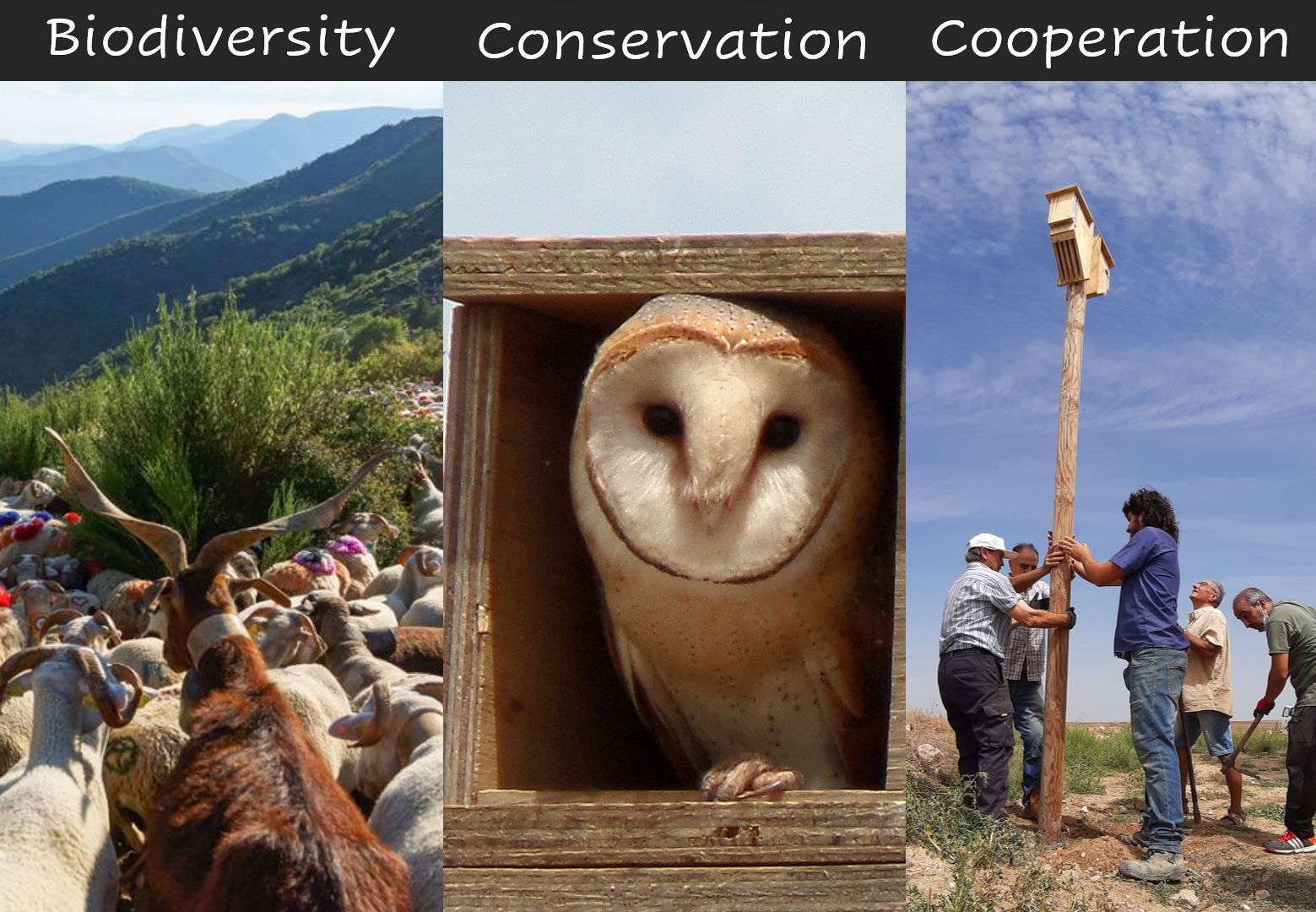El pasado día 14 de marzo estuvimos realizando una actividad con el programa “Escuelas Sostenibles” en el CEIP San Fernando de Aranjuez con el alumnado de 5º de Primaria y algunos escolares del Programa Erasmus, procedentes de Alemania.
Nos entusiasmó ver que este centro educativo dispone de multitud de recursos y, sobre todo, de muchas ganas e implicación del Equipo Docente para hacer que el colegio sea un espacio conectado con la naturaleza y su conservación.
Tanto es así que nos presentaron su “Huerto Filiberto”, un lugar estupendo para conocer las diversas plantas y a los principales polinizadores de la zona. Y, precisamente, para ayudar a estos bichitos, dedicaron parte de la jornada a construir hoteles de insectos con materiales como piñas, cortezas y cañas.
Por otro lado, con nuestra ayuda, construyeron 6 cajas nido para paseriformes y 4 cajas nido para murciélagos, los cuales colocarán en diversos lugares del centro para que sirvan de refugio a las pequeñas aves y mamíferos alados que tantos beneficios aportan en el mantenimiento de un ecosistema sano y equilibrado.
Y, por si esto fuera poco, también elaboraron carteles de concienciación sobre la importancia de la conservación de los insectos y el respeto hacia la naturaleza con el objetivo de que sirvan como ejemplo de buenas prácticas en el trato diario.
Sin duda, se trata de una experiencia que mucho tiene que ver con la filosofía que seguimos con el Proyecto Docendo Discimus y esperamos que sirva de ejemplo para inspirar a todos los centros educativos a aprovechar sus espacios y hacerlos más sostenibles.
On the 14th of March we carried out an activity as part of the «Sustainable Schools Programme» at San Fernando de Aranjuez primary school with year 5 students and also some german students from the Erasmus + programme.
We were thrilled to see that this school has a lot of resources and, above all, a lot of enthusiasm and commitment from the teaching team to make the school a place linked to nature and its conservation.
So much so that they showed us their «Filiberto Garden», a great place to get to know the different plants and the main pollinators in the area. And to help these little bugs, they spent part of the day building insect hotels using materials such as pine cones, bark and reeds.
On the other hand, with our help, they built 6 nesting boxes for passerines and 4 nesting boxes for bats, which they will place in different parts of the centre to provide shelter for the small birds and winged mammals that provide so many benefits in maintaining a healthy and balanced ecosystem.
As if that were not enough, they also designed posters to raise awareness of the importance of protecting insects and respecting nature, as an example of good practice in everyday life.
This is undoubtedly an experience that has a lot to do with the philosophy we are following with the Docendo Discimus project, and we hope that it will serve as an example to inspire all educational centres to make the most of their spaces and make them more sustainable.


